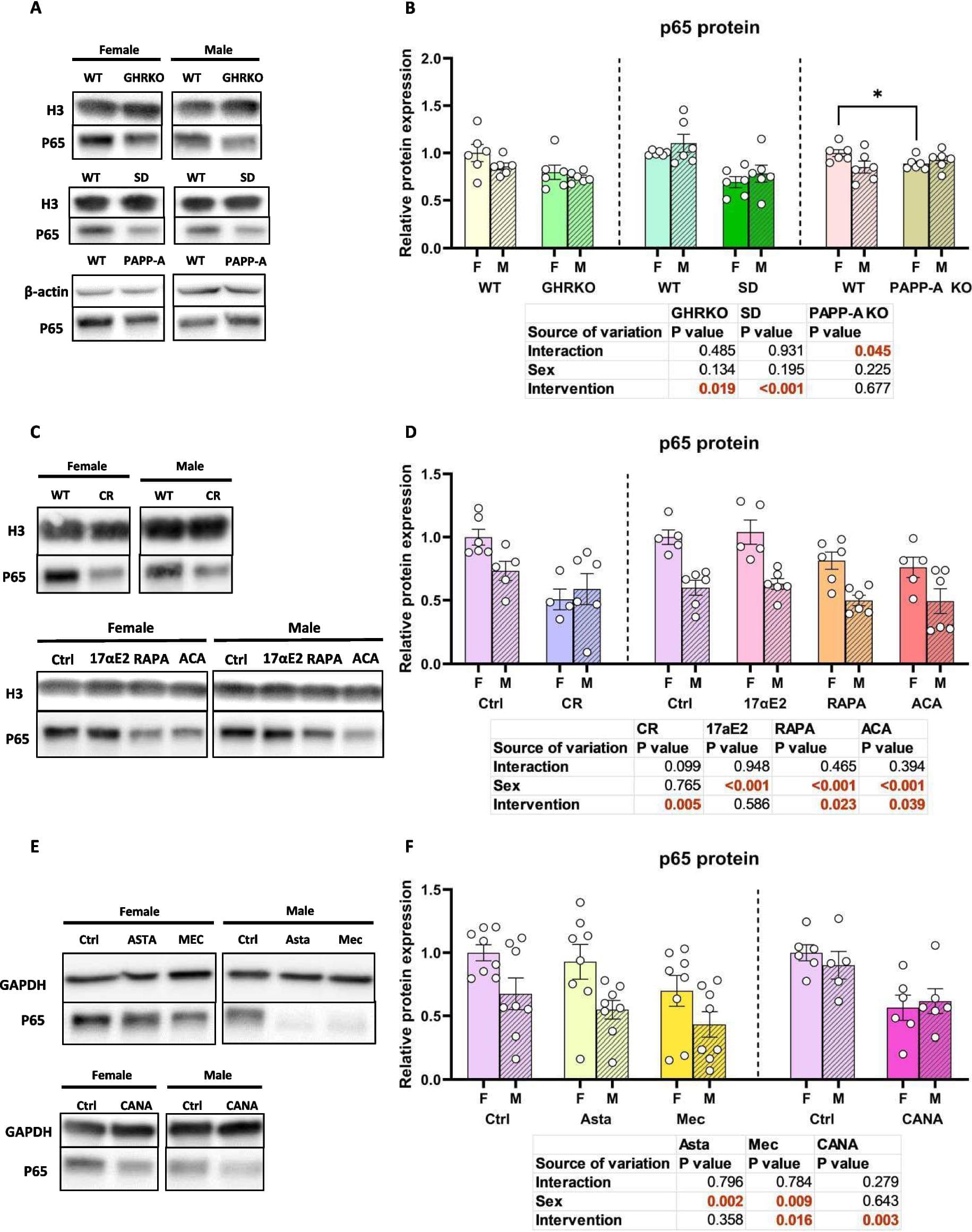Many aspects of inflammation increase with aging in mice and humans. Transcriptomic analysis revealed that many murine anti-aging interventions produce lower levels of pro-inflammatory proteins. Here, we explore the hypothesis that different longevity interventions diminish NF-κB levels, potentially mediating some of the anti-inflammatory benefits of lifespan-extending interventions. We found that the NF-κB protein p65 is significantly downregulated in the liver of several kinds of slow-aging mice. These included both sexes of GHRKO and Snell Dwarf mutant mice, and in females only of PAPPA KO mice. P65 is also lower in both sexes of mice treated with rapamycin, canagliflozin, meclizine, or acarbose, and in mice undergoing caloric restriction. Two drugs that extend lifespan of male mice, i.e. 17α-estradiol and astaxanthin, however, did not produce lower levels of p65.
